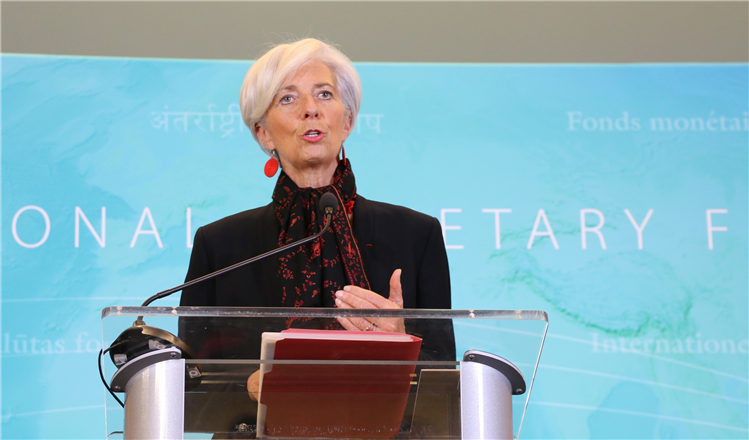Banks improve services for farmers and nomads
Updated: 2015-12-02 08:12
By Li Yang in Ganzi Tibetan autonomous prefecture, Sichuan(China Daily)
|
|||||||||
Banks in Sichuan province participating in a wide-scale poverty alleviation endeavor want to upend entrenched notions about lending to the poor.
Banking services that once required farmers and nomads to travel long distances to larger towns are being offered in villages.
And nine of the province's 12 impoverished cities and prefectures now have their own debt financing tools, which focus on bonds, and banks are encouraging businesses in poor regions to participate in the interbank bond market.
"What we are doing is turning the poor into the rich," said Zhou Xiaoqiang, president of the Chengdu branch of the People's Bank of China, at a meeting with the media on Nov 9 in the province's capital, Chengdu.
"A county head even marveled at how we could loan 20 million yuan ($3.33 million) in 2012, and decide to loan 200 million yuan in the future in an abjectly poor region where he supposed few people could do business," Zhou said.
At the end of June, there were 2,970 financial service agencies in 67 poor Sichuan counties, 35 more than at the same period of last year.
"The new financial poverty alleviation method is more self-motivated and sustainable," Zhou said. "It will inevitably transform China's poverty alleviation efforts."
The Postal Savings Bank of China's Sichuan branch plans to create 500 poverty-alleviation service stations in poor villages across Sichuan by 2017, and provide at least 120 billion yuan in financing for Sichuan's four most impoverished areas by 2020.
The service stations will provide a variety of services that once required villagers to go to larger cities, including deposits, withdrawals, loans and even agricultural sales in some locations.
Liu Qiang, vice-president of the postal bank's Sichuan branch, said it also will build an e-commerce network providing fund settlement services for local farmers and nomads selling agricultural products.
The loan balance of Agricultural Bank of China's Sichuan branch in the four main impoverished regions was 54.64 billion yuan at the end of September, an increase of 19 billion yuan in three years. The bank has set up 12,204 financial service stations in Sichuan's poor villages.
Tashi Tsring, president of Agricultural Bank of China's branch in Ganzi prefecture, said its deposits and profits will increase in the long run as the nomads' businesses prosper.
"The Tibetan ethnic group is highly conscious of credit. We have not yet encountered uncollectable debts," he said.
Gelrong Wangtok, director of a rural credit cooperative in Daocheng, Ganzi, said the entire prefecture's deposits in his cooperative totaled 160,000 yuan several years ago. Now, both deposits and loans have increased significantly.
"This is a win-win circulation of financial resources," he said.
According to the People's Bank of China's Chengdu branch, bank loan balances to 67 poverty-stricken counties in Sichuan totaled 246.3 billion yuan at the end of September, double the total at the end of 2012, and an increase of 16.8 percent year-on-year.
New poverty-assistance loans account for about 8 percent of the total new loans in the province, a slight year-on-year increase.
liyang@chinadaily.com.cn
(China Daily 12/02/2015 page7)
- Britain's Cameron says time to bomb militants in Syria
- Russia accept full suspension from athletics
- Turkish and Russian FMs to meet in Belgrade
- S.Korea, DPRK agree to hold vice ministers' meeting for improved ties
- Avoiding escalation over Russian warplane downing
- Rights panel presses US over scientists' cases

 A deepening friendship
A deepening friendship
 Xi, Obama pledge to manage differences in constructive manner
Xi, Obama pledge to manage differences in constructive manner
 BRICS media leaders gather in Beijing for cooperation
BRICS media leaders gather in Beijing for cooperation
 Restaurateur spreads Chongqing xiaomian all around the world
Restaurateur spreads Chongqing xiaomian all around the world
 Civil service exam: From mock interviews to mirror practice
Civil service exam: From mock interviews to mirror practice
 'Seoul, a city of stream' exhibition impresses visitors in Beijing
'Seoul, a city of stream' exhibition impresses visitors in Beijing
 IMF includes RMB in SDR basket
IMF includes RMB in SDR basket
 Exquisite gold and jade products go on display in Beijing
Exquisite gold and jade products go on display in Beijing
Most Viewed
Editor's Picks

|

|

|

|

|

|
Today's Top News
Chinese bargain hunters are changing the retail game
Chinese president arrives in Turkey for G20 summit
Islamic State claims responsibility for Paris attacks
Obama, Netanyahu at White House seek to mend US-Israel ties
China, not Canada, is top US trade partner
Tu first Chinese to win Nobel Prize in Medicine
Huntsman says Sino-US relationship needs common goals
Xi pledges $2 billion to help developing countries
US Weekly

|

|








